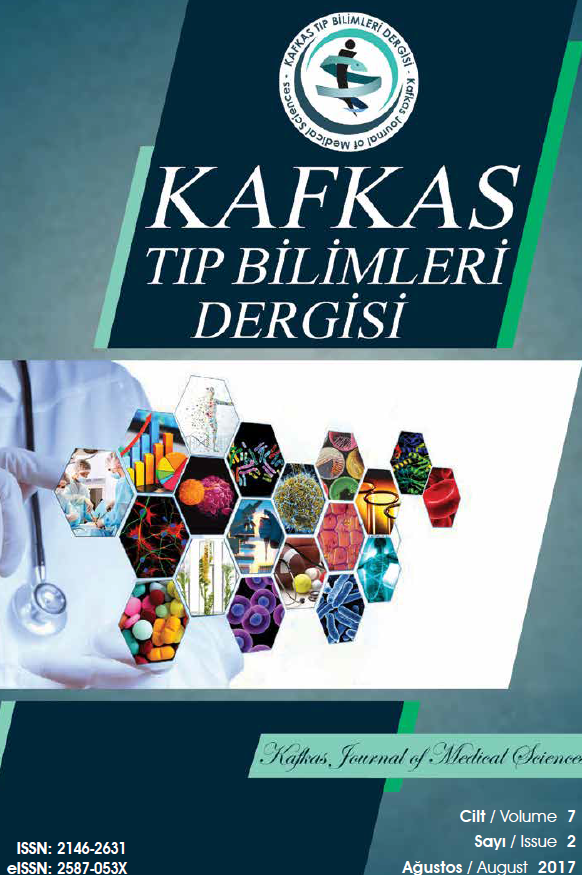Kalp Damar Cerrahisi Yoğun Bakım Ünitesinde Tedavi Gören Hastaların Algıladıkları Çevresel Stresörler
Çevresel etkiler, Kalp damar cerrahisi, Yoğun bakım
Perception of Environmental Stressors by Critical Care Patients Treated in Cardiovascular Surgery Intensive Care Unit
- ISSN: 2146-2631
- Yayın Aralığı: Yılda 3 Sayı
- Başlangıç: 2011
- Yayıncı: Kafkas Üniversitesi
Kars ilinde çiftçilerin zoonotik hastalıklara yönelik bilgi-tutum-davranışlarının değerlendirilmesi
Hülya Çakmur, Leyla Akoğlu, Esra Kahraman, Mustafa Atasever
Orbital Uzanım Gösteren Frontal Sinus Osteomu: Olgu sunumu
Alper METE, Halil Hüseyin ÇAĞATAY, Can PAMUKCU, Sabit KİMYON, Metin EKİNCİ, Duçem METE, Nihan ERYEGEN
Ranunculus Damascenus’un neden olduğu fito kontakt dermatit: Bir olgu sunumu
Ömer ELMAS, Okan KIZILYEL, Mahmut Sami METİN, Handan BİLEN, Mustafa ATASOY
Gülay Özgehan, Ali Cihat YILDIRIM, Gökșen İNANÇ İMAMOĞLU, Turgut ANUK, Hakan GÜZEL, İsmail Emre GÖKCE, İsmail Burak İREM, Saygı GÜLKAN
Endometrioziste Yeni Medikal Tedavi Yöntemleri
Gulsum UYSAL, Fulya CAGLI, Huseyin AKSOY, Ulku AKSOY, Basak CINGILLIOGLU, Eda KARAKILIC, Gokhan ACMAZ
Rize İli Akciğer Kanserli Hastaların Epidemiyolojik Ve Klinik Özellikleri
Yasin Sayıcı, Fatih Demircioğlu, Fatih Göksel, Savaş Karyağar, Aziz Gümüş
Cerrahi hastalarda düşme riski
Zeynep Karaman Özlü, Ayşegül Yayla, Nadiye Özer, Kenan Gümüş, Semra Erdağı, Zeynep Kaya
Yeşim Yaman Aktaş, Neziha Karabulut, Durdane Yılmaz, Ayşe Sevde Özkan
